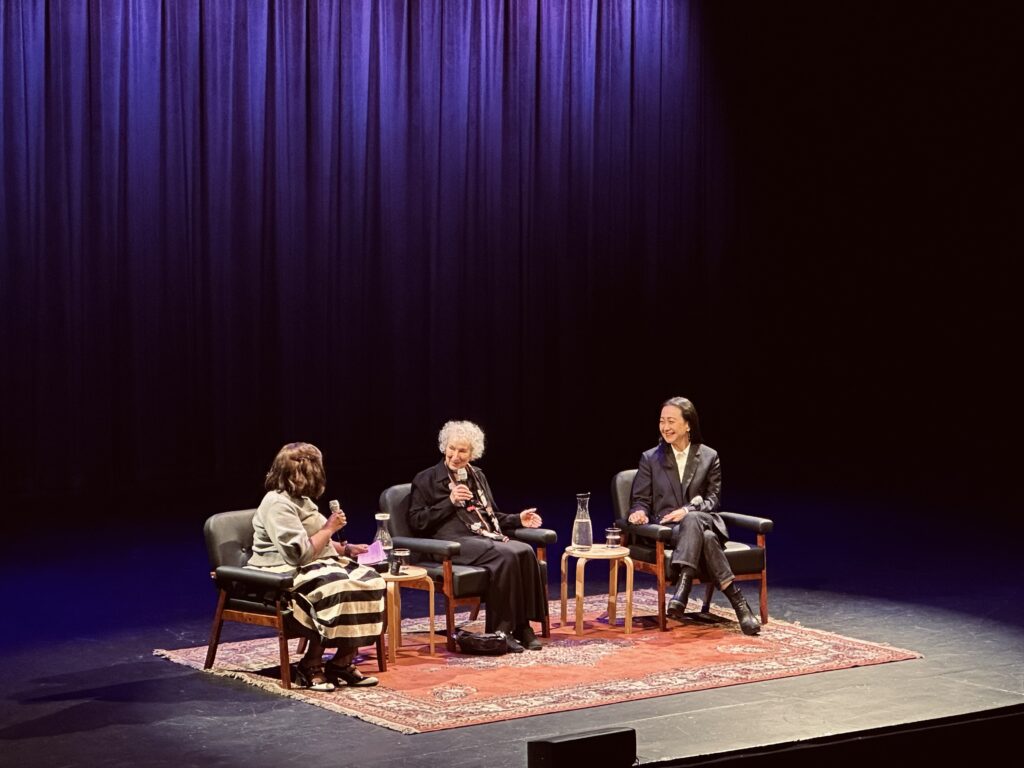Power and Storytelling

Hi there!
Last night, I went to an event that only New York could make feel like a casual Tuesday night—Margaret Atwood and Min Jin Lee discussing the power of storytelling. Yes, that Margaret Atwood and that Min Jin Lee, just having a conversation at the Peter Jay Sharp Theatre, as if it was no big deal. They were joined by New York Times journalist Veronica Chambers, and on the eve of a critical election, the topic couldn’t have been more timely.
One of the most fascinating parts of their discussion was when they explored the question of personality and morality in a writer’s work. Does every piece of writing carry an essential morality? Should it? Atwood and Lee both wrestled with this idea for a while. There was the idea that while you can’t separate a writer from their work completely, the writer’s moral compass doesn’t necessarily dictate the worth or impact of their stories.
It got me thinking. Do you need to be a good person to be a good writer? Personally, I don’t think so. Writing is often about exploring the messy, dark sides of humanity, and sometimes it’s the morally questionable people who tell the most honest stories. But I do believe that a writer’s essential personality probably shines through their work. Whether they want it to or not, it’s there in the choices they make—the characters they develop, the conflicts they explore. Even if they’re writing from the perspective of someone completely different, their lens on the world shapes the narrative.
This leads to an even bigger question: What kind of power do writers actually have? Honestly, I’m not sure they have much at all. At best, they might have influence—nudging readers to think a little differently, to question their assumptions, to feel something. But true power? I think that’s a stretch. It’s rare that a story can single-handedly change the world, but it can influence the way we see it. And maybe that’s the real strength of storytelling—not to wield power, but to open doors, create connections, and start conversations that wouldn’t happen otherwise.
One thing is undeniable: reading creates empathy. By stepping into someone else’s shoes, seeing the world through their eyes, we start to understand perspectives that might be foreign or uncomfortable. That’s the real strength of storytelling—not to wield power but to get people thinking and create understanding. It’s not about changing the world overnight, but about planting the seeds of empathy that could one day grow into something larger.
And when you’re listening to writers like Atwood and Lee, it’s hard not to feel that influence in action. They may not have all the answers, but they’re definitely asking the right questions.
Talk to you soon—
—Lara